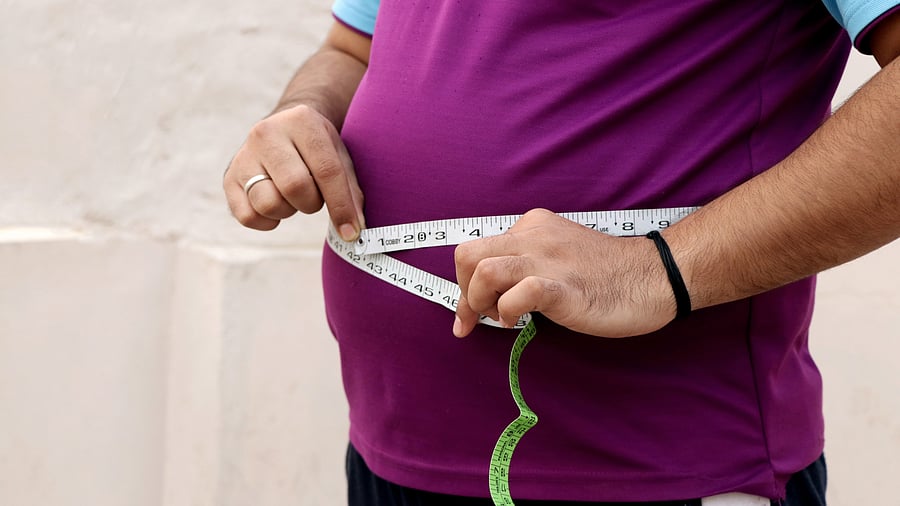
New Delhi: Nearly one in four Indian adults is now obese, a study inaugurated by the Tony Blair Institute for Global Change in Delhi on Tuesday claimed, adding that India is at a turning point as obesity-driven diseases rise sharply across both urban and rural areas.
The report says national data already shows how serious the problem has become. Quoting the National Family Health Survey 2019-21, the study says that in Delhi, 41 per cent of women are obese compared to 12 per cent in Meghalaya. Further, 22.8 per cent of children aged 6 to 16 in Delhi are obese compared to 13.6 per cent in Maharashtra.
The paper titled 'Building on success to secure India's future health' said that 24 per cent of women and 23 per cent of men in India have either overweight or obesity, almost five times higher than 30 years ago. Rates are much higher in cities and vary widely across states.
The report adds that this pattern is part of a wider global trend. Worldwide healthcare spending has doubled in the last two decades but people are spending fewer of their added years in good health. Health systems built mainly to treat illness are now under pressure from rising demand and shrinking resources.
Global obesity rates have doubled since 1990 and now affect almost one billion people. If trends continue, more than half of all adults worldwide could be overweight or obese by 2050, it added.
The report warns that obesity is already increasing India's disease burden and placing pressure on the economy.
Obesity costs India about $2.4 billion every year in healthcare spending and reduces the country's economic output by roughly USD 28.9 billion, close to one per cent of GDP, it said.
Initiatives such as Eat Right India and the Fit India Movement are helping improve diets and physical activity. A "sin tax" on sugary drinks introduced this year and work on national obesity guidelines show further action on prevention, it said.
At the roundtable held in the national capital, experts stressed the need to make preventive health a central part of India's growth strategy, the statement added.
Vivek Agarwal, Country Director at the Tony Blair Institute for Global Change, said India is well placed to lead in prevention.
"By combining technology, data and community-driven action, India can not only reduce the growing burden of obesity but also build a stronger, more resilient health system for future generations," he said.